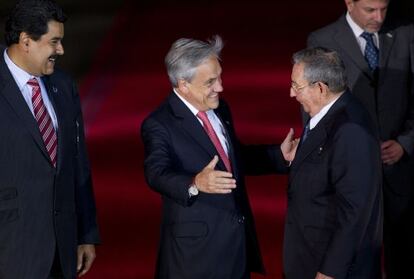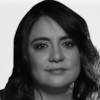EU gets reluctant pledge from region's leaders to respect foreign investors
"I am again battling for my health," says Chávez in a letter to summit attendees

The need for legal guarantees to ensure that foreign investments in Latin America are protected and not summarily subjected to nationalizations was one of the major points discussed by regional and European leaders at a summit in Chile this past weekend.
Nevertheless, a host of Latin American presidents differed with their European counterparts on how to approach the matter, leading to a somewhat weakly worded final statement.
"We underscore the importance of promoting open, stable, predictable and transparent regulatory frameworks to encourage investment and provide legal certainty to investors and local stakeholders, while recognizing the sovereign right of states to regulate," read the joint statement signed on Sunday, which will cover the next two years.
Negotiations during the two-day summit of the EU and Community of Latin American and Caribbean States (CELAC) were arduous. Leftist nations such as Bolivia, Cuba, Ecuador, Venezuela, Nicaragua and Argentina opposed that part of the declaration. Over the past years, tensions between Spain and Argentina and Bolivia have heightened after a string of nationalizations and repossessions of Spanish investments in those nations.
We need partners, not owners of our raw materials," says Bolivia's Evo Morales
European Commission President José Manuel Durão Barroso said the need for legal security for foreign businesses was crucial to continue forging a business relationship between Europe and Latin America.
But Bolivian President Evo Morales explained after the summit that his country had rejected some points in the Santiago declaration, especially the focus on legal security for companies because "we need partners, not owners of our raw materials."
Following the two-day summit, CELAC leaders held their own meeting on Monday in which Cuban President Raúl Castro was elected to take over the rotating presidency of the community from Chile's Sebastián Piñera. CELAC was formed in 2011 in Caracas by an initiative of Venezuelan President Hugo Chávez.
Venezuelan Vice President Nicolás Maduro read a signed letter from Chávez, who is still recovering in Cuba from major cancer surgery he underwent on December 11 and has not been seen in public since. "I am sorry I can't attend this meeting in Santiago, Chile but as you all know since December I've been battling once again for my health," the letter stated.
Last week, Venezuelan officials and Bolivia's Morales said that Chávez was undergoing additional therapy so that he could return home. But on Monday, Venezuelan Information Minister Ernesto Villegas said that the government "didn't want to create any false expectations" about his return.
Villegas said that the respiratory failure Chávez suffered days after he was operated on was now under control, but his physicians have continued to monitor his recovery through laboratory tests and that the president was undergoing a second phase of examinations to determine what further treatment will be necessary. Other than what the government has officially been reporting, the nature of his illness is not known.
In his letter, Chávez reiterated his calls to end the US blockade against Cuba and for a de-colonization of the Falkland Islands.
After the letter was released, several handwriting experts consulted by some news media organizations said that Chávez's signature didn't appear to have been an original but a facsimile copy.
Tu suscripción se está usando en otro dispositivo
¿Quieres añadir otro usuario a tu suscripción?
Si continúas leyendo en este dispositivo, no se podrá leer en el otro.
FlechaTu suscripción se está usando en otro dispositivo y solo puedes acceder a EL PAÍS desde un dispositivo a la vez.
Si quieres compartir tu cuenta, cambia tu suscripción a la modalidad Premium, así podrás añadir otro usuario. Cada uno accederá con su propia cuenta de email, lo que os permitirá personalizar vuestra experiencia en EL PAÍS.
¿Tienes una suscripción de empresa? Accede aquí para contratar más cuentas.
En el caso de no saber quién está usando tu cuenta, te recomendamos cambiar tu contraseña aquí.
Si decides continuar compartiendo tu cuenta, este mensaje se mostrará en tu dispositivo y en el de la otra persona que está usando tu cuenta de forma indefinida, afectando a tu experiencia de lectura. Puedes consultar aquí los términos y condiciones de la suscripción digital.









































